Professor Stephen Adei, a respected academic and governance expert, has called on Ghanaian political leaders to uphold the integrity of the legal system and prioritize national unity in the aftermath of the 2024 elections.
Speaking in an interview with TV3 on December 22, 2024, Prof. Adei emphasized the importance of allowing the judiciary to function independently, free from political interference and public grandstanding, to maintain public confidence in Ghana’s democratic institutions. He urged politicians to temper their rhetoric with legal prudence and adopt a collaborative approach to resolving disputes.
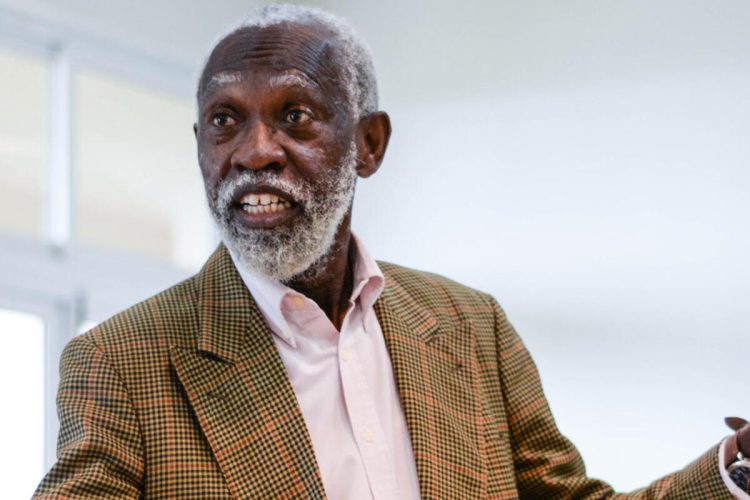
Prof. Adei expressed deep concern over the rising polarization in Ghana’s political landscape, particularly between the National Democratic Congress (NDC) and the New Patriotic Party (NPP). He warned that such divisions threaten national cohesion and could undermine the country’s democratic progress.
“For Ghana’s democracy to thrive, there must be a concerted effort by all political actors to reduce polarization and foster unity. The hostility between the two major parties is not sustainable and could erode the social capital we’ve built as a nation,” he cautioned.
He urged party leaders to engage in constructive dialogue and work together in the national interest, emphasizing that political rivalry should not come at the expense of Ghana’s stability and development.
Addressing the legal disputes arising from the 2024 elections, Prof. Adei underscored the need for timely resolutions to electoral challenges. He noted that delays in adjudicating cases often lead to uncertainty and frustration among the electorate.
Citing the prolonged Assin North legal battle as an example, he stated, “Had the legal process been expedited, the affected MP could have resumed their duties much earlier, ensuring effective representation for their constituents. Prolonged appeals and technicalities only serve to weaken public confidence in the judiciary.”
Prof. Adei urged political leaders to refrain from inflammatory rhetoric and respect the outcomes of judicial proceedings, highlighting the judiciary’s role as an impartial arbiter in resolving disputes.
Prof. Adei proposed a series of administrative reforms to address the challenges in Ghana’s electoral process. Key among his recommendations was the need for enhanced security at polling stations to prevent unauthorized access and potential malpractice during vote collation.
“These reforms are not necessarily constitutional but administrative. They require decisive leadership and commitment to implementation,” he explained.
He also called on the Electoral Commission (EC) to improve its operational framework to minimize disputes and bolster public trust. Suggestions included streamlining vote collation processes, improving voter education, and ensuring transparency in all electoral activities.
Prof. Adei appealed to Ghana’s political leaders, including President-elect John Dramani Mahama, to demonstrate responsible leadership in their public engagements. He stressed the importance of prioritizing national interests over partisan gains.
“For the sake of Ghana’s democracy, our leaders must be circumspect in their actions and statements. Justice will only prevail if we adhere to due process and respect the rule of law. Grandstanding or inflammatory rhetoric only serves to deepen divisions,” he remarked.
He further urged political leaders to adopt a people-first approach by focusing on governance that fosters development and unity.
Prof. Adei concluded by emphasizing that the challenges currently facing Ghana’s democracy present an opportunity for reflection and growth. By addressing political polarization, streamlining electoral processes, and ensuring judicial independence, the nation can strengthen its democratic foundations.
“Ghana has always been a beacon of democracy in Africa. It is up to us to ensure that we continue on this path by embracing reforms and prioritizing the collective good over individual or party interests,” he stated.
This call for unity and institutional strengthening serves as a timely reminder of the need for political maturity and collaborative governance to secure Ghana’s democratic future.

































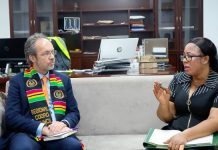
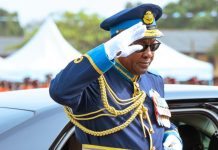
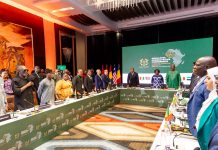




















![[FREE FREE MONEY] Predict and Win a Guaranteed GH¢200 From Us EVERY WEEK](https://wordpress.ghanatalksradio.com/wp-content/uploads/2022/02/Predict-and-Win-Final-09-03-2021-218x150.jpg)
![[Predict & Win – 8th/Oct.] WIN A Guaranteed ¢200 From Us This Week](https://wordpress.ghanatalksradio.com/wp-content/uploads/2021/10/maxresdefault-16-218x150.jpg)
![[Predict & Win – 2nd] WIN A Guaranteed ¢200 From Us This Week](https://wordpress.ghanatalksradio.com/wp-content/uploads/2021/09/maxresdefault-50-218x150.jpg)
![[Predict & Win – 25th] WIN A Guaranteed ¢200 From Us This Week](https://wordpress.ghanatalksradio.com/wp-content/uploads/2021/09/maxresdefault-36-218x150.jpg)
![[Predict & Win – 18th] WIN A Guaranteed ¢200 From Us This Week](https://wordpress.ghanatalksradio.com/wp-content/uploads/2021/09/maxresdefault-23-218x150.jpg)
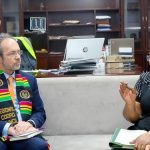
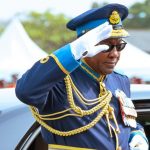






![[National cathedral] See full list of churches that have contributed since 2018](https://wordpress.ghanatalksradio.com/wp-content/uploads/2020/09/Ghana-National-Cathedral-GhanaTalksRadio-100x70.jpg)



